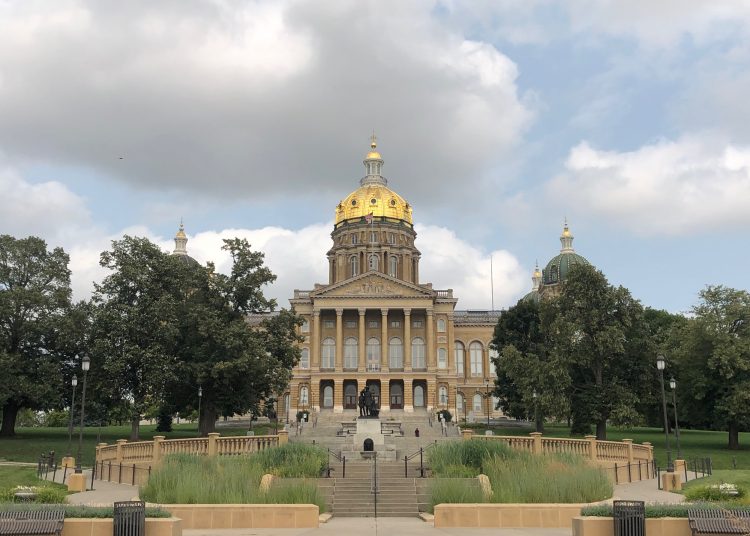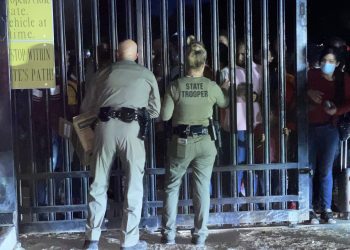(The Center Square) – Gov. Kim Reynolds and Senate Majority Leader Jack Whitver, R-Ankeny, called for income tax cuts Friday in response to the Iowa Revenue Estimating Conference’s estimates that net receipts will increase 1.5 percent in 2022 and 2023.
“Now, with full reserve accounts and record setting surpluses, it is time to permanently reduce income taxes and continue to reward work and investment,” Whitver said in a news release. “Iowa should remain a national leader in implementing successful economic policies to make the state an even better place to live, work and raise a family.”
Gov. Kim Reynolds said in a statement the REC forecast “reaffirms the need to cut taxes and return the overcollection of taxpayer dollars.”
Reynolds continued, asserting she would work with her administration and lawmakers to draft a bill to further lower Iowa residents’ taxes.
Although, overall, gross tax receipts and other receipts would decrease an estimated 1.1 percent in fiscal year 2022, lottery transfers will increase four percent (up $103 million) and school infrastructure refunds (accrual) will increase five percent (up $588.2 million). REC anticipates corporate income tax receipts will decrease 10.1 percent, personal income tax receipts will decrease 2.1 percent and sales/use tax receipts will increase 3.5 percent in fiscal year 2022. Fiscal year 2023 estimates show a 4.1 percent increase in corporate income tax, a 1.5 percent increase in personal income tax receipts and a 3.2 percent increase in sales/use tax receipts over fiscal year 2022.
Legislative Service Agency Fiscal Services Division Director Holly Lyons said the agency is “cautiously optimistic” in its estimates.
Lyons said general fund net revenue for fiscal year 2021 increased $870 million, 11 percent, over fiscal year 2020, exceeding the conference’s estimate by $737.1 million, or nine percent. Fiscal year 2021 revenue was “much higher” than the conference had projected in March, particularly in the fourth quarter, which provided “a very strong rebound” following the pandemic-induced low rate of growth in fiscal year 2020, Lyons said. The fiscal year 2021 growth exceeded any year since at least fiscal year 2001,” she said.
The growth multiple states experienced in the third and fourth quarters of fiscal year 2021 “reflected positive consumer confidence in the form of pent up demand for goods and services, an improving economy, and massive federal assistance,” she said.
Lyons warned the majority of Iowans may not have as much money to spend in late spring and summer of 2022 as they did in 2021. She said the COVID-19 delta variant has slowed economic growth in the third quarter calendar year 2021 in terms of consumer spending and services and is expected to continue to do so through the end of 2021.
“We continue to be in strange times, with an unbelievable level of uncertainty,” she said.
Conference Chair and Department of Management Director Kraig Paulsen said there is room for growth in workforce participation rates and supply chains are “currently very stressed.” Personal saving rates decreased from the highs early in the pandemic but are still “slightly higher” than pre-pandemic levels so, coupled with the supply chain disruptions, there may be “significant pent-up demand” for consumer and business spending, Paulsen said. Inventories are “unsustainably low, another precursor to growth,” he said.
In the Iowa agriculture sector, commodity prices have decreased since the “near record prices” at the beginning of 2021 but are “nowhere near the lows in 2019 or 2020,” he said. Exports “remain strong” and farmland prices are “near record highs and remaining steady as demand remains strong.”
“Fuel costs are a concern, and rising energy costs could be a drag on growth if not addressed in a meaningful manner,” he said.
He said the state is closely watching inflation and the impact it has on consumer spending, but as other measures “normalize,” inflation “should decrease.”
Conference member CFO on DEMAND David Underwood said he anticipates wages will increase and that the Federal Reserve is continuing to talk about letting interest rates increase. He said increases in interest rates would be good for Iowa since “a lot of Iowans do have cash investments where they get interest.”
















